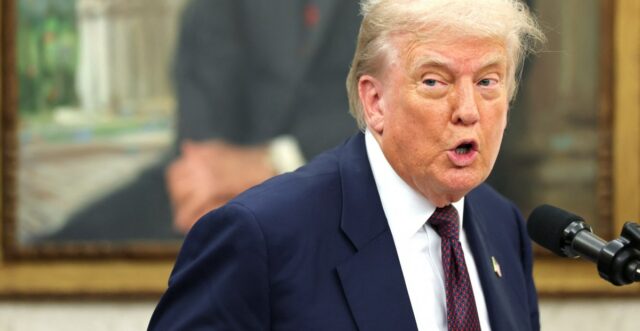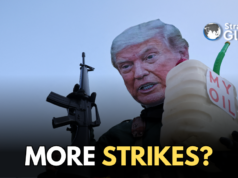“The tariff policy of the American administration resembles a cowboy style, which generally indicates a crisis in American diplomacy,” said a Moscow-based strategic analyst, speaking on condition of anonymity. “Cowboys should also have their own ethics and rules. Trump, however, is currently sticking exclusively to a game without rules.”
India had expected a more stable second-term relationship with Trump, underpinned by shared concerns over China and strong personal rapport between the leaders. Instead, the tariff spike, seen as coercive and unilateral, has pushed India to reassert its strategic autonomy.
“Trump’s tactics are backfiring,” the Moscow-based analyst claimed. “Rather than increasing American leverage, he’s uniting BRICS members and making longtime partners question U.S. reliability.”
Former diplomat Narinder Chauhan argues that India is being targeted for what it represents in the new global order.
“On the one hand, India has been a crucial strategic partner of the U.S. in its rivalry with China. On the other, India’s huge trade surplus with the U.S. and its close relations with Russia—which is under pressure from the U.S. to agree to a peace agreement with Ukraine—has made India an unwitting target for punitive tariffs,” Chauhan explained.
“By cherry-picking oil trade and ignoring PNG imports to Europe and China, Washington and Brussels are clearly using double standards. India has rightly called out this doublespeak by both the U.S. and EU.”
She noted that Russia sees the pressure campaign as more about opening India’s markets to U.S. agriculture, dairy, and defence products than about the Ukraine war. Trump himself hinted at the transactional nature of his approach, reportedly telling a journalist:
“It’s only been a few hours—the rest of the movie remains to be seen.”
“President Trump is a businessman,” she said. “He wants a deal on his terms. But Prime Minister Modi has already made it clear—there will be no compromise on India’s crucial interests. Trade deals take years, even a decade. Trump doesn’t have that time.”
Chauhan warns that failure to secure a deal may even jeopardize Trump’s participation in the November QUAD Summit, with broader implications for Indo-Pacific strategy and the so-called “containment of China.”
Professor Rajan Kumar from Jawaharlal Nehru University identifies three likely responses by India: hard negotiation with India refusing to open up sensitive sectors like agriculture; tied to this is a flexible oil strategy which may seen some reduction in Russian oil imports as price gap narrows; and some warming up to China.
“Attending the SCO Summit in China is not business as usual,” said Kumar. “India had been keeping its engagement with SCO low-key due to border tensions. But with Trump’s tariffs and growing instability, India is returning to regional platforms to rebalance.”
Trump’s tariff war is also seen as a catalyst accelerating BRICS consolidation. India is reportedly in advanced discussions with Brazil and other members on expanding trade in local currencies, promoting cross-border digital payments (such as India’s UPI and Brazil’s PIX), and boosting lending through the New Development Bank.
“India is not retreating—it’s repositioning,” said the Moscow analyst. “Washington’s pressure is ironically uniting the Global South. And it’s no longer about symbolism. BRICS is now a real economic and strategic bloc.”





